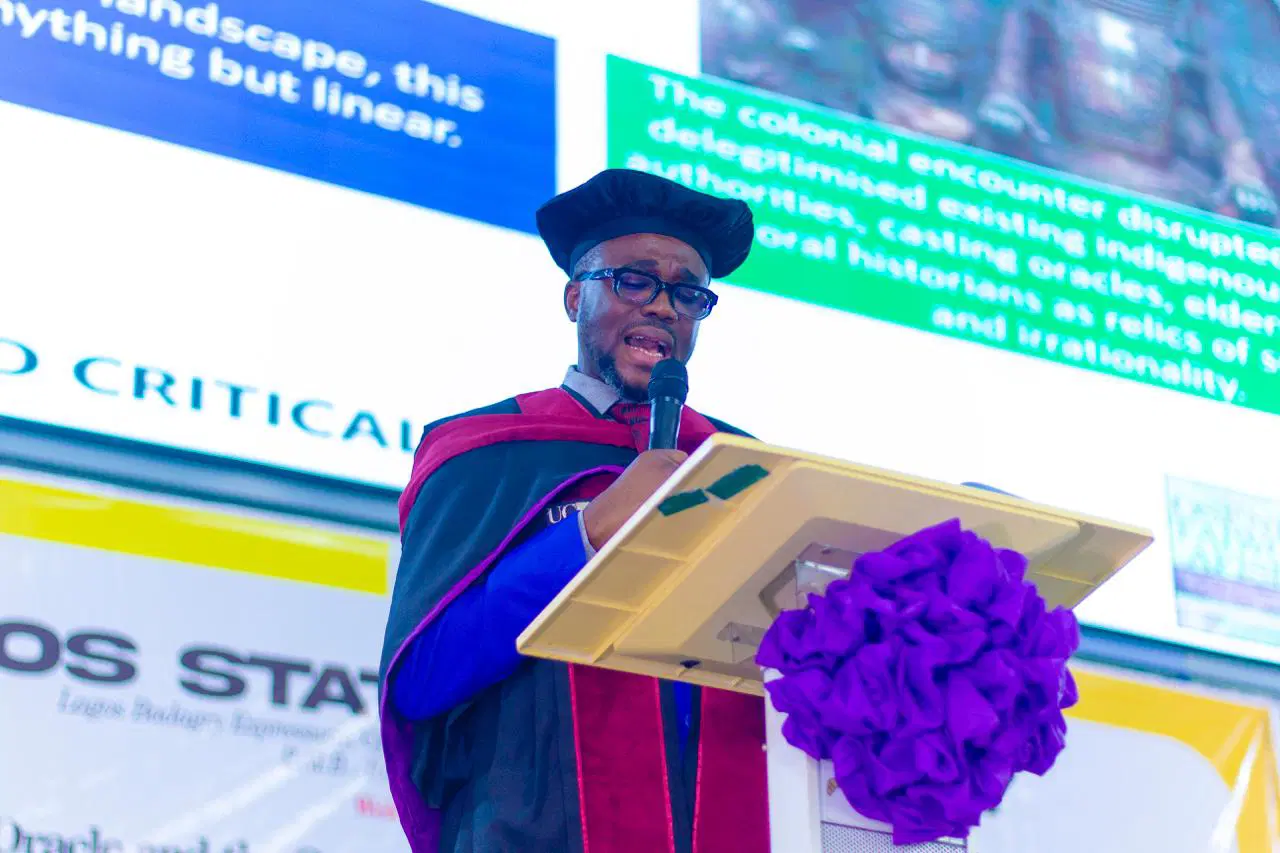EDUCATION

AI CANNOT REPLACE INDIGENOUS AFRICAN WISDOM — LASU DEPUTY VC
Professor Taiwo Oseni Afisi, Deputy Vice Chancellor (Academics) of Lagos State University (LASU), has emphasized that no matter how advanced Artificial Intelligence and data-driven technologies become, they can never substitute the depth and richness of African indigenous knowledge systems.
Delivering LASU’s 108th Inaugural Lecture on Tuesday, Prof. Afisi — a distinguished philosopher specializing in Logic, Philosophy of Science, and Critical Rationalism — highlighted the enduring value of African epistemologies in an increasingly automated world.
The lecture, titled “The Oracle and the Open Society: Rethinking the Evolution of Authority and the Pursuit of Epistemic Justice in African Philosophical Thought,” was held at the Buba Marwa Auditorium, Ojo campus. The event drew a diverse audience, including scholars, students, traditional leaders, and dignitaries from across and beyond Lagos State.
In his address, Prof. Afisi called for a paradigm shift from the mere acquisition of data to the cultivation of ethical, historically informed, and culturally grounded wisdom.
“In today’s algorithm-driven world, it’s not enough to be informed,” he stated. “We must be guided by values, inspired by justice, and anchored in the wisdom of African philosophies.”
As LASU’s first indigenous professor of philosophy, inaugural philosophy lecturer, and the first to become Deputy Vice Chancellor in that field, Afisi used the occasion to champion a future rooted in Africa’s intellectual traditions.
He urged the academic community to rethink dominant epistemological frameworks and adopt epistemic pluralism — an inclusive approach that recognizes indigenous African knowledge as vital to scientific, moral, and political progress.
“Research must remain rigorous,” he said, “but it should also be socially relevant, embracing indigenous knowledge systems not as outdated relics, but as dynamic and meaningful sources of insight.”
On education, he advocated for a comprehensive overhaul of African curricula at all levels, pushing for the integration of African perspectives in science, logic, ethics, and civic education. This transformation, he noted, should not be symbolic but rooted in substantive philosophical reasoning.
“The goal is not just to decolonize education, but to ground it firmly in African realities,” he stressed.
Turning to Africa’s burgeoning tech ecosystem, Prof. Afisi warned against the blind adoption of Western technologies. Instead, he encouraged African innovators to build AI systems that reflect local values such as fairness, transparency, and communal accountability.
“African innovation must go beyond imitation. We must design technologies that embody Ubuntu and other indigenous ethical frameworks,” he said.
He also called for the inclusion of digital ethics, the philosophy of technology, and indigenous knowledge in the curricula of tech hubs and academic institutions.
Prof. Afisi further appealed to cultural custodians and community leaders to actively preserve and promote African oral traditions, governance models, and symbolic knowledge systems — not as antiquities, but as vital contributors to modern civic and intellectual life.
“Community elders should be recognized as partners in education and thought leadership, helping shape Africa’s moral and intellectual trajectory,” he said.
According to him, true wisdom lies not in possessing information, but in its just and purposeful application. He envisioned a future where Africa leads not only in data and innovation but also in ethical reflection and culturally conscious governance.
“Let Africa lead in wisdom, not just in data,” he concluded. “Let the oracle speak and the algorithm listen. Let the people reason together, and may Africa’s open society be not a borrowed concept, but a living tradition — critically rebuilt, philosophically grounded, and ethically sustained.”
"This represents a significant development in our ongoing coverage of current events."— Editorial Board









